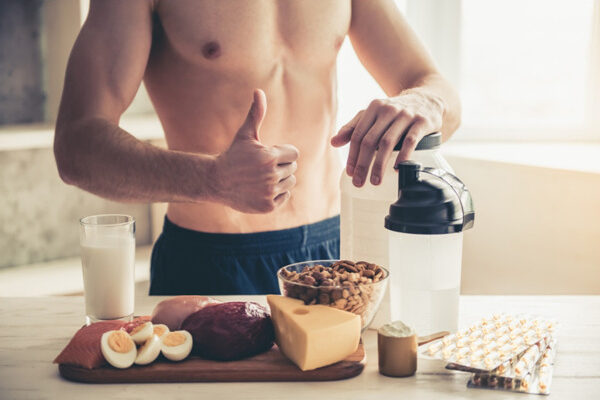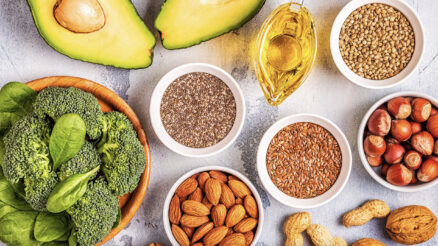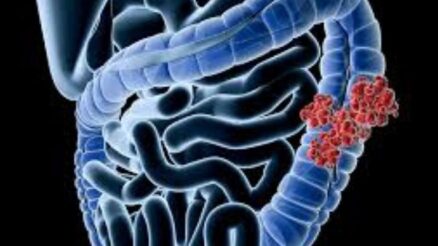Athletes have unique dietary needs and eating healthy helps them maintain a high-quality life throughout their lifespan. So, whatever your sports activity, you should aim to eat healthy to provide you all the nutrients your body needs.
Active individuals often get frustrated with reading materials that don’t offer convenient and practical tips for sports nutrition. The list below shows dietary tips about sports nutrition to help you get the most out of your fitness activities.
-
Start Your Day the Right Way
Your first meal of the day is crucial since your body technically is fasting while you sleep and wakes up depleted. So start your day with a healthy meal to help replenish your blood sugar. The sugar will help power your muscles and brain.
Not eating breakfast can make you feel lethargic and light-hearted while you’re working out. Choose the right kind of breakfast─ ideally, one that will keep you feeling full for long.
A protein-and fiber-rich breakfast, for example, may keep hunger pangs at bay and provide the energy you need to work out for longer. Also, eating breakfast at regular times has been linked to a reduced risk of diabetes, obesity and heart disease.
-
Load Up on Carbs
Carbs are the primary fuel for athletes. The human body changes them to simple sugar (glucose) and stores it in the liver and muscles as glycogen. As you work out, your body converts glycogen into energy.
If your workout lasts for less than 90 minutes, your body can perform well even for high-intensity activities. However, if you exercise for longer than that, then you may want to consume a diet that’s about 70% carbohydrates.
Consider loading carbohydrates for 3 to 4 days prior to an event to top up your glycogen levels. The common sources of carbs include cereals, fruit, vegetables, pasta and bread. Keep in mind to keep off starchy or sugary foods within 30 minutes of starting an exercise─ they can accelerate dehydration.
Reload on carbohydrates, water, and minerals during long workout sessions. Drink fluid or eat a snack every 25 to 20 minutes.
Many athletes prefer sports drinks and sports bars as they are so convenient. After intensive workouts, it’s best to consume less-refined carbs, such as carrot sticks, since they provide a rich array of nutrients.
-
Eat More Whole Foods
This is one of the most overlooked sports nutrition tips. Diet plans that require you to avoid certain food groups aren’t sustainable and often not healthy. Eating whole foods means consuming foods in their natural state like a mango. Try to avoid processed foods that have been engineered and broken down into something completely different.
Foods that come in the state they grow in nature are a better choice. Since people like doing things in moderation (and that’s okay), you should incorporate real foods for most of your meals. The easiest way to achieve this is by limiting the amount of packaged food.
-
Get Enough Protein
While protein isn’t filled with much fuel for energy, you need it to maintain your muscles. Consume it in moderation and spread your intake throughout the day. Eating too much protein can strain your kidney so monitor your intake.
Experts recommend a daily intake of 1.2 to 2 grams of protein for every kilo of body weight. Weight-lifters may need up to 1.7 grams for every kilogram of bodyweight.
Athletes should eat high-quality protein like lean meats, eggs, milk, nuts and beans. Milk is often seen as a superfood for recovery after a workout, as it provides the right balance of carbohydrates and protein. Milk also contains whey protein and casein, a helpful combination for athletes.
Whey protein is quickly absorbed into the body, which can help you recover faster after an event. Casein, which is digested much slower, helps ensure long-term muscle recovery after a grueling workout.
-
Balance Macronutrients
Macronutrients refer to the three main food elements─ protein, carbohydrates, and fat. It would be best to limit fat intake and eat less saturated fats and more unsaturated fats. Opt for lean meats like fish and chicken and unrefined oils seeds.
Consume a well-balanced diet three to four hours before exercising or a match. It’s a myth that all sports players should stick to a low-carb, high-protein diet. There’s no doubt that protein plays a crucial role in a sports person’s eating plan since it helps strengthen and repair muscle tissue.
As mentioned, your body needs stored glucose to maintain energy and optimum performance. The amount of protein and carbs you need varies by activity. Power sports athletes typically need more protein and a moderate amount of carbohydrates. Those who participate in endurance sports need a modest amount of protein and more carbs.
Many athletes can obtain the recommended amount of protein from eating healthy alone. Supplements, such as nootropics can help improve executive functions or motivation in healthy individuals. View more to learn about high-quality supplements that can help add to your sports nutrition plan.
-
Keep a Food Journal
Keeping a food journal is one of the easiest fitness tips to implement. A food journal is a fantastic accountability tool that helps you stay on the sports nutrition track.
When starting, it may not feel very easy to record everything you consume, but over time, you’ll get used to it. Food journals can be simple, writing down every healthy meal several times a day, or as complicated as calculating calories and separating macronutrient groups.
The point of a journal is to help you take responsibility for your eating habits. Once you adopt healthy eating habits, you typically don’t need the food journal, especially as you become more aware of your nutritional needs.
-
Stay Hydrated
One of the best ways to stay hydrated is drinking water throughout the day. Sports drinks can help replenish carbs and electrolytes lost during an event. If you sweat a lot during workouts, look for drinks that contain salt and potassium.
Incorporate These Sports Nutrition Tips Into Your Diet
As an athlete, you probably know a lot about sports nutrition. But there’s always room for improvement and becoming your best self. Both exercises and nutrition are critical elements for optimal training and performance.
Start adding some of these tips into your daily dietary habits. For more tips and advice on health and fitness, check out our blog.





